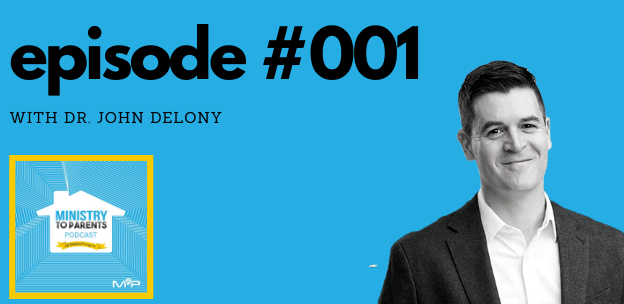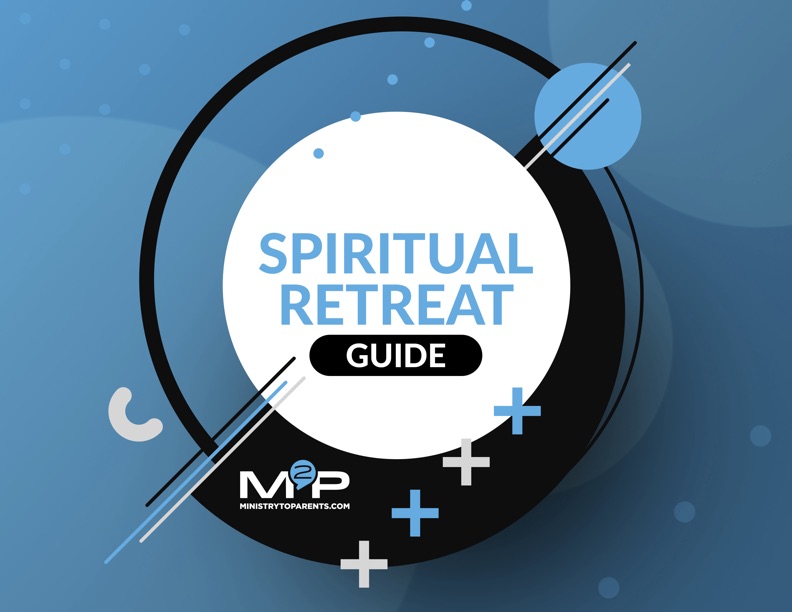Did you know the role of a pastor is considered as stressful as a doctor or lawyer? And this information comes pre-global pandemic! And this…this right here…is why we created a whole month dedicated to ministry leaders. Our theme this month is Care for the Soul Spiritually and we start with Dr. John Delony, a leading voice on emotional wellness. Plus, we thought it was the PERFECT topic to kick-off the Ministry to Parents Podcast!
Common Struggles Among Ministry Leaders With Dr. John Delony
Dr. John Delony is a leading voice on relationships and emotional wellness. He recently became the newest Ramsey Personality, dedicating his life to helping people find hope and light in a turbulent and uncertain world. As everything around us is changing, many are finding that they don’t have the tools they need to care for themselves or their loved ones. John helps people reclaim their lives, make the next right move, and take responsibility for their thoughts and behaviors.
Before joining the team at Ramsey Solutions, John worked as a senior leader at multiple universities. He also has extensive experience in personal and community crisis care and response. He holds two Ph.D.s—one in counseling and the other in higher education.
For encouragement and inspiration, connect with Dr. Delony on Twitter, Instagram, YouTube, Facebook, johndelony.com or daveramsey.com.
TO LISTEN TO THE PODCAST EPISODE, CLICK HERE.
TRANSCRIPT
Common Struggles Among Ministry Leaders with Dr. John Delony Episode #001
[00:00:01.710] – Jeremy Lee
OK, so we’re going to bring in a friend of ours, a new friend of ours, to keep discussing our topic today, which is kind of the common struggles that ministers face. And we wanted to bring in Dr. John Delony. Welcome, sir. Thank you for being with us.
[00:00:21.630] – Dr. Delony
Thanks, Jeremy. Thanks for having me.
[00:00:22.980] – Jeremy Lee
Now they say you’re from Ramsey Solutions, Dave Ramsey’s organization, and you’re one of their new personalities. Congratulations. That’s not an easy task to accomplish there to get on that team.
[00:00:35.420] – Dr. Delony
We’re having a blast. I didn’t know exactly what we were signing up for, but we’re having a good time doing it.
[00:00:41.090] – Jeremy Lee
And I saw a video where you said that they call you Dr. D. I’m not going to do that. I’m going to have to just call you Dr. Delony. I can’t do it.
[00:00:49.670] – Dr. Delony
You call me John, my momma named me John, so you can call me that.
[00:00:52.720] – Jeremy Lee
All right. Hey, with your permission, I will. So thanks for being with us. Now, for those of you who don’t know or haven’t heard John yet, he is a senior leader. He was a senior leader at multiple universities. You have not one but two PhDs. Why did we need two, John? I mean, come on…
[00:01:11.720] – Dr. Delony
…my self-esteem is that low…
[00:01:17.330] – Jeremy Lee
…Funny…So one of them is in counseling. One of them is in higher education. But he speaks on emotional wellness and relationships, which kind of layers right into our topic today. So that’s why I think it would be a great addition to the conversation. So, John, we’ve told you our audience is children’s ministers and youth ministers. And one of the things that they struggle with that we hear from them as they talk to us is they don’t know how to let others know they’re struggling. It’s kind of like they feel like they should be setting an example.
[00:01:53.690] – Jeremy Lee
But in doing so, they’re not really sure how to share that. They’re struggling. They think that it might hurt them or hurt their career in some way or hurt their influence. There’s a lot of different fears surrounding that. So can you help us think through a healthy process for a public leader to seek help for a private struggle?
[00:02:17.710] – Dr. Delony
Yes, and I don’t know if you know this, but in my nerd world, my research was actually on the mental health and wellness of doctors and lawyers and pastors.
[00:02:32.080] – Jeremy Lee
Oh, no, this is awesome.
[00:02:34.870] – Dr. Delony
So that’s where I’ve spent my last five or six years in my nerd world. And my dad was a homicide detective and a SWAT guy who then left working there to become a minister, too. And so I had a ringside seat over the last 20 years, really, of watching these things evolve and watching how ministers do and often don’t take care of themselves and their loved ones and then just kind of the shrapnel after that. So I love this conversation and it’s something I’m really, really passionate about, particularly for faith leaders.
[00:03:06.550] – Dr. Delony
I think there is a couple of things here that I’ve seen, and you can just feel free to hop in whenever I’m going. But the first thing is, is this idea of image consciousness versus modeling. And so what I think a minister, a children’s minister, youth minister especially can be like a family tree changing gift for the young people and their parent is to model what breathing looks like and model what a faith questions look like.
[00:03:42.370] – Dr. Delony
And what they can do is a lot of hurt when they pretend those things don’t exist because then people are trying to live into a picture of what they think a faith follower looks like. And it’s unattainable if it doesn’t include sadness and it doesn’t include low days and it doesn’t include the heavy questions and needing to reach out to mentors. And so one of the things that I’ve seen over the last several years that most ministers is- this idea that they’ve got to perform in a certain way.
[00:04:14.350] – Dr. Delony
And eventually that performance, that sitting on their feelings, sitting on their frustrations or their fears, we call it leakage in the counseling world. It will find its way out. And usually it comes up in spectacular fashion if they don’t deal with it on a regular basis.
[00:04:31.030] – Jeremy Lee
And another aspect of this is this idea that ministers sometimes we can feel isolated and we’re dealing with everybody else’s stuff. It’s hard to know. I call ministers, sometimes first responders to the soul because, you know, when when the stuff goes down physically, people call the ambulance. When stuff goes down emotionally, they call the counselor. But when stuff is going on inside the soul, typically people bring it to the minister. But yet we’re also present in all of the other crises. So we’ve got that. But then we have our own struggles and sometimes we feel like we’re the only ones going. We feel isolated in our struggle. Like we’re the only one. So what’s an encouragement you can say to a minister that might be feeling that today?
[00:05:22.560] – Dr. Delony
And you’re just you’re nailing it. So that brings you to number two, which is often this happens out of good faith. Nobody’s a bad actor here. But normally what happens for a minister is especially in the last I’ve seen a shift in the last three to five years, is they are surrounded by people at their church or specific elders or church leaders who are designed to pray for them, be there, accountability people. But what I’ve found over the years is that I’m not going to go to my bosses, to use an HR term, to talk about struggles I’m having that might cost me my job or that I feel like I’m going to have to be on guard in some shape or form or fashion. And so what you mentioned, the clinical term point you mentioned is secondary traumatic stress. And so we often think of the trauma as something that’s acute, that happens when you see a car wreck or someone you love passes away.
[00:06:20.540] – Dr. Delony
But secondary traumatic stress is cumulative and the analogy I give folks is we all have a backpack and we can have a trauma that’s dropped in there like a cinderblock, or we can collect pebbles over time. But at the end of the day, that weight is the same. And so what a minister does for a living, like you mentioned, is they take other people’s pain, they take other people’s rocks. And if they don’t have a plan to get them out of their backpack, then they will collapse them.
[00:06:48.560] – Dr. Delony
And so the only way to usher those rocks out of our backpacks is through other people and not only other people, but being vulnerable to other people. And there’s nobody better at smiling and being with people without being vulnerable than a group of pastors, their magic at that. So they have to be intentional about finding people that are not their bosses, that are not their spouses often that they can be in vulnerable relationship with. And that, to me, is the magic moment when a pastor can have a long term career where they can stay healthy and help those around them or they’re going to implode and end up getting out of the ministry altogether.
[00:07:28.520] – Jeremy Lee
What are some of the common struggles you see or hear about ministers facing that? I guess I’m just kind of hoping somebody might hear something on the list to go, oh, me too, you know.
[00:07:39.230] – Dr. Delony
It is the litany of just being human, and it’s the faith questions, do I even believe this anymore? Or I am working for this particular denomination and I check off seven of their ten items. But the other three, I don’t know so much about that. Or one of the heavy ones that ministers struggle with a lot is- I’ve taught generations, I thought 10 years worth of families this one thing. And then science came out and changed it.
[00:08:09.950] – Dr. Delony
Or I realized that I had been interpreting scripture the wrong way or somebody I heard a message that made me realize I was saying this the wrong way. And then you have to look backwards at a wake of people that you wish you could have that message back and that’s heaviness we wear. Right? So let’s say I use one for my childhood. So I’m an old Church of Christ kid, right? So the wars that were happening when I was a little kid was- could you have a guitar in church- right?Strum a guitar and say the word Jesus at the same time? Dude, the wars that went on about that across the country, internally. And now it’s like a laughable discussion, right?
[00:08:49.070] – Dr. Delony
Given the current situation with declining church enrollments and cultural shifts and things that seems like the least of anybody’s worries. But, man, there was a lot of tears and blood and punching and kicking that was done over that. And so to be able to put down- say I’m doing the best I can with what I know right now and understand that some things are going to evolve- that weighs on ministers a lot, too. And then, like you mentioned, I think ministers find themselves in a lot of heavy, heavy situations.
[00:09:17.090] – Dr. Delony
And quite frankly, they don’t have the training, like I can learn a lot about what to say when somebody passes away, it is totally different being in a hospital room and you have to tell a mom that her son passed away. Right? And they only do by wisdom, I mean, I’m sorry by experience. And you don’t know what that’s going to feel like until you do it.
[00:09:36.000] – Dr. Delony
And if you’ve got four years of undergrad and six years of graduate school and you owe one hundred twenty-five thousand dollars and you get into your first death notification and realize this isn’t for you, now you’re in a mess. Right. And so the whole trajectory is challenging, especially when you can’t get into some of these situations, without just really experiencing them yourself.
[00:09:57.240] – Jeremy Lee
Hmm. So good. I think through my own therapy journey, one of the things I’ve learned with a lot of stubbornness mixed in is that what I go to therapy for initially ended up only being a symptomatic issue, something that’s deeper. And I think that’s pretty common. But I also think there’s a lot of ministers maybe who have not yet engaged or sought help this might be a new concept for- this idea that maybe this thing that they’ve dealt with their struggle with for years upon years may not actually be the foundational problem. Can you kind of give them some understanding of that?
[00:10:41.000] – Dr. Delony
Yeah, I think. I think the chief demon of our time, particularly for ministers is loneliness. And I think that the cascading ripple effects of loneliness, both culturally and in the ministry, is devastating. Even if you just look at the American Medical Association put out in November, which seems like one hundred years ago, that the life expectancy in the US had gone down again for the third straight year.
[00:11:09.060] – Dr. Delony
And it’s not for murder and it’s not for crimes, things like that. They’re calling them diseases of despair, which we’re the most connected, yet disconnected group of human beings to ever walk the planet. And so when our brains are scanning the environment for when we’re out of sync with our communities, when we are not being social, then it starts doing crazy things like it starts dividing the world up into us and them and it starts displacing anger and it starts looking for dopamine hits wherever it can get them, whether that’s through extramarital relationships or through buying stuff or overexercising or overeating.
[00:11:46.380] – Dr. Delony
And so you look at the pathologies, the things that, you know, I’m going to counseling because I had an affair. I’m going to counseling because I overeat or I work out too much. You’re right. What’s actually pointing to some of the demons are we are totally lonely. We don’t know how to be in a relationship with each other or we don’t know if we totally buy what we’re selling theologically. That’s how we’re making our money. And that incongruence is wearing on us over time or people are coming to us with how to deal with their marriages and me and my wife aren’t talking anymore. And so that weighs on us. Right? And so, yeah, it’s easy to point at the thing. We’re going to get this one thing fixed, but you end up finding a well of other challenges that really in my world have just come down to very few things, which is loneliness, loneliness, loneliness is being the chief home.
[00:12:38.130] – Jeremy Lee
Wow. That’s actually so fascinating to me. Just the central importance of that issue of loneliness. I have to think through that. Hey, thank you so much for just giving us a little bit of your time. I just really appreciate it. Now, you’re new. You’re new at Ramsey Solutions, one of their personalities. They got kind of a team of speaking folks and so I guess if people want to find more out about your work, what you do, they go to DaveRamsey.com for sure. But where can they find you elsewhere on social media and other places like that?
[00:13:13.030] – Dr. Delony
You can follow me at JohnDelony.com and I’m the kind of mental health guy. So we’re talking about relationships with yourselves and with your loved ones and with their neighborhoods and communities and our churches. I’m kind of a pretty passionate about people rediscovering how to be in a relationship with one another.
For more post on how to care for your soul as a church leader, check out:
What To Do When You’re Spiritually Empty: 3 Steps to Care for Your Soul
6 Ways to Care for Yourself While Caring for Others
How to Care for Your Wounds and Hurts in Ministry
M2P Members!!!
We have a special resource for you! Pick up your Spiritual Retreat Guide in the Toolbox: Care for your Soul.
Interested in M2P Membership? Click HERE for more.



